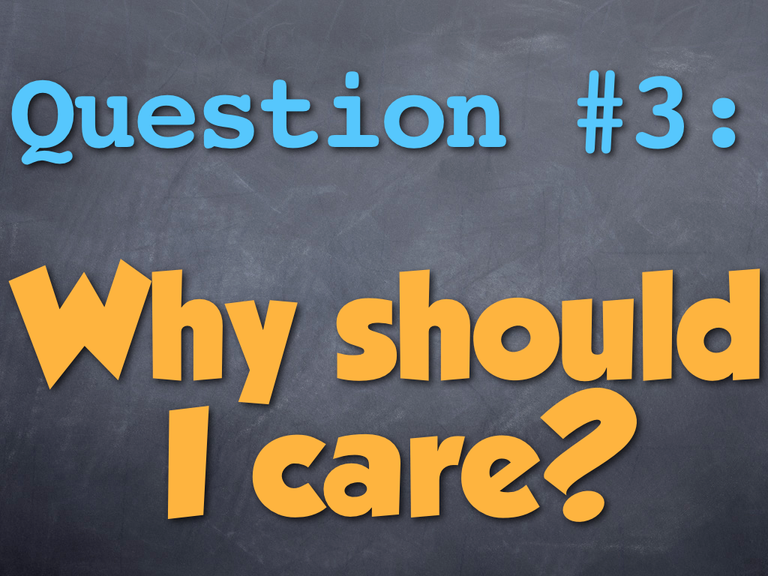Recently, a family member asked me to talk to her school-aged daughter, who doesn't like to write.

So I decided to give her some practical suggestions, since I enjoy writing. Presented with this opportunity, I began to reflect on why I like to write, my own #struggles with writing over the years, and the struggles of my dear wife, who does not enjoy writing at all.
I like to keep things simple, so I had three simple suggestions. They are nothing new or Earth-shattering, but I still feel they are worth sharing:
Write about something you like and/or approach your topic in a way that appeals to you.
As a high school student, I attended a conservatory for piano #lessons. Unfortunately for my teacher, I did not practice nearly enough to truly polish my technique and perfect the works I played. This went on for a few months, and then my teacher, asked me a genius question: "what do you like to play?" I was taken aback at first. Then I thought "what do you mean? I thought we only play music here, that is written by ancient dead guys (incredibly intelligent ones at that)."

Her question stuck with me throughout the years because it confirms a general principal we all know to be true: you try harder when you do something you like/feel passionate about. At the time, I had the time to devote to immersive video games like Final Fantasy. Anyone who's played anything like that will understand what I mean when I say, you can turn that game into a full time job for a few weeks/months. Anyway, I found myself enjoying the soundtrack of Final Fantasy X in particular. In fact, I devoted most of my piano practice time, ironically, to learning "To Zanarkand," the opening theme, rather than the works I had to perform at the conservatory. I still remember how to play it to this day, almost 15 years later (I've forgotten most everything else).
What I'm trying to say, is start by asking yourself the question: "what do I care about/enjoy?"

Is it underwater basket weaving? Maybe it's cooking, traveling, or gardening. You'll know what it is because you're already thinking about it, researching it, talking about it, etc. So take that next step: start writing about it. We've all heard that "practicing makes perfect." Well writing about things you enjoy will make writing about anything else, much easier.
So here's where we come to the problem of "what do I do when I have to write about something I don't care about?" For most of us, the very prospect of writing an essay on something like exploring the geopolitical climate of South America may literally put us to sleep, or compel us to turn on youtube to relieve that crushing boredom. But regardless of how we feel, that essay/research paper must be done.
When confronted with dilemmas like this, I suggest we look beyond our immediate boredom, fear, and laziness. Instead, let's approach the topic, in a way that is meaningful/makes sense to us. So often, we may feel so overwhelmed with the task of writing about something intimidating/boring/new, we'd rather not do it at all. But let's not give up before we've even tried. A great majority of life is problem solving, and "creative" problem solving at that. After all, we can't "Google" everything.
Thus, by taking a seemingly intimidating/boring topic, and breaking it down, we may discover something about it that we can relate to or find interesting. And this will help us to at least start writing.

Treat writing like a conversation.
Understandably, so many people feel intimidated by writing because they fear they lack the necessary grammatical skills to write something that "sounds good." Some feel plagued by uncertainty of how to start an essay, paragraph, or sentence. Others may suffer from maladies like run-on sentences. These fears are completely normal, and unfortunately keep so many people, who have something great to say, from writing anything at all.
Here's the thing though: if you can have a good conversation, I'll bet you can probably write well too. Think about it. Most writing is communication, just like talking. The main difference, of course, being that one is spoken and the other is written down. I know that sounds blatantly obvious, but some people feel like writing is this scary/unknown land they don't want to venture into. I firmly believe that it's because they don't look at writing as just written down conversation.
For example
if you're struggling with starting an essay or paragraph, just think about how you'd start a conversation. Most likely it'd be with a statement like: "I just nearly died." There's your "thesis." Now, just tell everyone why you "almost died." Was it something you did, or something that was done/happened to you? These are the "supporting details" that will make up the rest of the essay/paragraph. Conversely, you wouldn't then immediately move on and tell everyone about your grandmother who lives in Maine, because everyone would be thinking "what the heck?!" and they'd ask you to explain your earlier statement.
Treating your essay/paragraph like a conversation, will help you also make natural transitions between different points that support your main thesis. Constantly ask yourself "does this transition make sense/feel natural here, or would it be better somewhere else?" For example, right after telling everyone why you almost died, you can move on to something like "I'm so glad to be alive" or "this is why you shouldn't do ____ so you don't get hurt" or something similar. Thus, your main thesis at the beginning of your essay, should be a statement that's broad enough, so that you can support it with specific relevant details throughout the rest of your paper.
Furthermore, in a normal conversation, you probably wouldn't have run on sentences, because you'd simply pass out from not breathing. For me, reading my writing out loud helps me avoid this problem. It also helps me insert commas into the appropriate places, to give the reader the pause they need to keep reading and breathing comfortably.
Just start writing.
So, you've figured out what you enjoy and how to make it sound natural/fluid, but you're still worried about making mistakes. In our politically correct climate, people are deathly afraid of being wrong. For example, Youtubers, who dare make any slight mistake with their facts, will be almost instantly corrected by dozens of angry posters, who sometimes behave as though this slight mistake was an offense directed at them personally. However, the inevitability of life is that we ALL fail. We all make mistakes. And it is nothing to fear. In fact, some wise person, said that "failure is the greatest teacher." So if we want to learn, one of the best ways to do that is to fail and move on, never giving up. We need grace when we mess up, and we need to have grace for those who do too.
Look, you may not be the greatest writer out there. Who cares?! If you feel passionately that you have something to say, just start writing and keep at it. And don't let the keyboard warriors discourage you. Because here's the not-so-secret truth: they make mistakes too.
Finally, I truly hope that someone finds this post helpful/encouraging. I'm no writing guru/bestselling author/genius, but I've found these simple principles helpful, and so I wanted to pass them along. Cheers!
You got a 60.81% upvote from @bid4joy courtesy of @bloggerslife!
Hi Filipp!!! How's life? How's Anita and ur kids?
Anita and the kids are great, thanks! Life is crazy busy. We both work full time. How about you?
Not liking to write is one thing, not liking to read and write that's a whole different topic. As you're reading this I can do either I wrote this by using voice to text on a Samsung device. And now I have no idea how many people I hate my both
Thank you! Very interesting!)
My pleasure, thanks for reading!
Hi Filipp⭐️
Hello :)!
Hi Filipp:) nice post
Thank you!